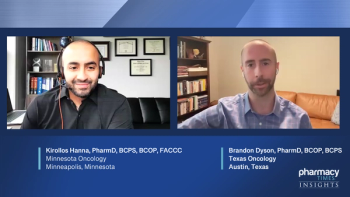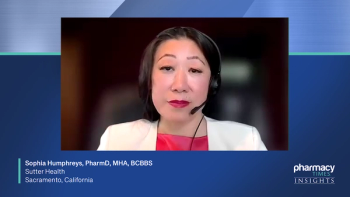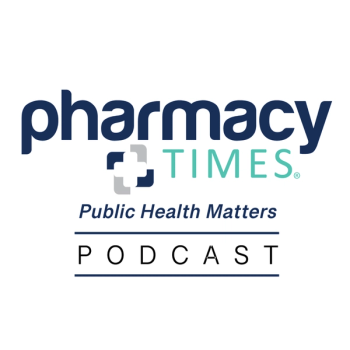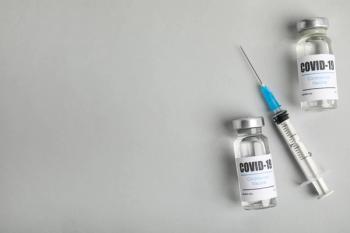
William Carroll, PharmD, network vice president of pharmacy at Hackensack Meridian Health, discusses his hopes for the new partnership.

William Carroll, PharmD, network vice president of pharmacy at Hackensack Meridian Health, discusses his hopes for the new partnership.

Childhood immunization according to schedule can prevent serious illness.

Erin McConnell, PharmD, discuss the clinical decision-making process for choosing between statins, PSCK9 inhibitors, or newer agents like inclisiran.

Erin McConnell, PharmD, discusses the importance of effective cholesterol management for preventing heart disease.

Experts highlight how leveraging organizational scale, data analytics, and community partnerships can enable independent pharmacies to identify and address pharmacy deserts.

The discussion explores the frequency and impact of dose modifications due to adverse events, strategies for maintaining outcomes, monitoring protocols, and how these modifications affect long-term CLL therapy effectiveness and treatment decisions.

The discussion addresses when dose modifications are typically required in chronic lymphocytic leukemia treatment and identifies the most common reasons for these modifications.

As the end of this Congress approaches, the National Community Pharmacists Association is lobbying members to pass pharmacy benefit manager reforms.

The chief product and strategy officer at Linus Health is hopeful that pharmacists can be key players in the detection of mild cognitive impairment.

Jenni Zilka discusses the growing issue of "pharmacy deserts" and the need to maintain the financial viability of pharmacies.

The combination of amivantamab and lazertinib showed improved intracranial efficacy, progression-free survival, and overall survival for non-small cell lung cancer.

Pharmacy students discuss the value of collaborative, hands-on learning approaches that leverage technology and social media to enhance learning.

The discussion covers proactive strategies and interventions for managing adverse events before dose modification and explores supportive care measures for chronic lymphocytic leukemia treatments, including variations based on specific Bruton tyrosine kinase inhibitors.

The discussion explores the evolution of understanding adverse events (AEs) related to Bruton tyrosine kinase inhibitors in chronic lymphocytic leukemia treatment and identifies the primary classwide AEs associated with these therapies.

The panel of pneumococcal vaccination experts offer their concluding insights and perspectives on the current landscape of pneumococcal vaccines.

Dr Humphreys discusses biosimilar copay programs.

Glenn Balasky discusses AI’s potential to change oncology care and optimize patient outcomes.

Fred Barton discusses the role of PBMs in making prescription drug decisions.

Tune into this episode of “Public Health Matters” to learn about the Unbiased Science podcast and how guest Jessica Steier, DrPH, PMP, aims to combat misinformation and disinformation, encouraging listeners to make evidence-based decisions.

Gwen Nichols, MD, discusses challenges associated with the limited access to CAR T therapy and the need to expand outpatient and community care for patients.

Mark Fendrick, MD, speaks about the importance of improving financial toxicity for patients while optimizing their outcomes.

Nick Ferreyros discusses the state and federal regulations impacting payment reform.

Breanne Peyton-Thomas, PharmD, BCOP, discusses her work as a pharmacist at Ochsner Health on the CAR T-cell therapy team.

Pharmacy students develop concept for exam augmented reality glasses for clinical situations and patient counsling.

Lalan Wilfong, MD, discusses the road to value-based care and payment reform in cancer care.

Lazertinib with amivantamab was found to be similar in efficacy to osimertinib in the MARIPOSA study.

Pharmacists are encouraged to leverage their trusted community role to help manage the anticipated health care burden from respiratory infections this season.

Alessandra Ferrajoli, MD, discusses the importance of renal function for BCL2 inhibitors to avoid tumor lysis syndrome and cardiovascular history for BTK inhibitors to mitigate arrhythmia risks.

Reid Merryman, MD, discusses the potential for minimal residual disease (MRD) to inform treatment decisions, identify lymphoma subgroups, and infer gene expression.

Pharmacy professors discuss their experience implementing a TikTok activity in their curriculum, highlighting the benefits and challenges.